What Clinical Research Really Shows About Probiotics and C. diff Recovery
Skip below to the following sections:
Scientific Evidence on Probiotic Support for C. difficile
Why Some Probiotics Fail
Targeted Benefits of Bacillus Probiotics for C. difficile
More Benefits of Bacillus
S. Boulardii: Fast-Acting Diarrhea Support
Focused Gut Toxin Binding with Mega IgG2000
Michelle’s Probiotic Recommendations
We’re Here to Support You
Beware Counterfeit Products on Amazon
Scientific Evidence on Probiotic Support for C. difficile
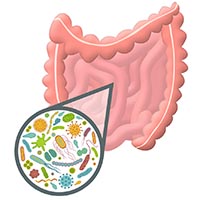
While some doctors remain skeptical, the majority of published studies report positive outcomes when probiotics were used alongside antibiotics in patients with C. difficile.¹ ² Other studies have found an association between probiotic use and a lower risk of new C. difficile infections in study populations.³
For example, a 2017 analysis of 6,261 adults who received antibiotics during their hospital stay found that those who began probiotics closest to the start of antibiotics reduced their risk of C. difficile infection by more than 50%.⁴ The strongest effect was seen when probiotics were taken within two days of starting antibiotics.
This makes sense, because C. difficile infections arise from an imbalanced gut microbiome, often as a result of antibiotic use. Since C. difficile stems from a disrupted gut microbiome, studies indicate that targeted probiotics can be an important tool for rebalancing gut health.
The challenge is that not all probiotics work the same when it comes to C. difficile. Many of the most common probiotics on the market are fragile and lose their strength before they ever reach your gut. That’s why choosing the right type of probiotic is so critical — because some deliver real support, while others fall short.
This doesn’t mean probiotics work the same for everyone — but it does challenge the idea that they don’t matter at all in C. difficile.
Why Some Probiotics Fail
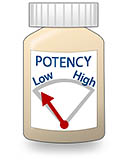
Probiotic Potency
Most probiotic products are made with species of non-spore forming Lactobacillus and Bifidobacteria bacteria because they’re popular and widely recognized. But most of these are fragile: sensitive to oxygen and heat, which means many can lose viability in the bottle before you ever take them. They’re also vulnerable to stomach acid and often significantly reduced during antibiotic use.
Manufacturers try to compensate by requiring refrigeration or advertising very high potency values, measured in CFU (Colony Forming Units). But CFU counts only reflect what’s in the bottle at the time of manufacture, not what survives shipping, storage, and digestion.
In fact, the Food Standards Agency in the UK found that about 90% of non–spore-forming probiotic strains may be killed by stomach acid before ever reaching the intestines.²³ Unless the strain is specially protected or naturally more resilient, this helps explain why many people find traditional probiotics less effective for gut support than expected.
In contrast, Bacillus spore probiotics are naturally resilient. They’re heat stable up to 400°F and have been shown in clinical studies to survive passage through the harsh, acidic digestive system — arriving in the intestines intact and active. In fact, a commissioned gastric model study by the Silliker Food Science Center (Crete, IL) demonstrated 100% survivability of Bacillus spores in simulated stomach acid.²⁴
Benefits of Bacillus Probiotics for C. difficile
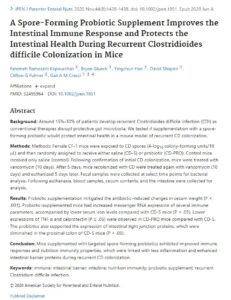 Unlike fragile Lactobacillus or Bifidobacteria strains, Bacillus spore probiotics are designed by nature to survive. They can withstand heat, oxygen, stomach acid, and even antibiotics — giving them a unique advantage when gut health has been disrupted by C. difficile.
Unlike fragile Lactobacillus or Bifidobacteria strains, Bacillus spore probiotics are designed by nature to survive. They can withstand heat, oxygen, stomach acid, and even antibiotics — giving them a unique advantage when gut health has been disrupted by C. difficile.
For decades, Bacillus probiotics have been studied around the world for their ability to support intestinal balance, reduce antibiotic-associated diarrhea, and strengthen immune defenses.
More recently, specific Bacillus strains have been shown in laboratory and preclinical research to produce antimicrobial compounds that may inhibit C. difficile and interact with its toxins.
Evidence From Bacillus Studies
- Bacillus coagulans – In clinical studies, B. coagulans supplementation was associated with improvements in markers and symptoms observed in C. difficile colitis, including reduced colon inflammation, better stool consistency, and improved overall outcomes.⁵ It was also associated with lower recurrence rates when given after vancomycin treatment.⁶
- Bacillus clausii — Research shows B. clausii produces an antimicrobial compound called clausin that has demonstrated inhibitory activity against C. difficile and other Gram-positive bacteria in research models.⁷ It has been shown in research models to produce enzymes that may help break down C. difficile toxins, providing protection against intestinal damage.⁸
- Bacillus subtilis (HU58 strain) — This strain has been shown to produce more than a dozen antimicrobial substances. Research suggests B. subtilis can help suppress harmful gut bacteria and support a healthier microbial balance. It has also been studied for its role in enhancing immune function in elderly subjects, as indicated by increased levels of secretory IgA — the body’s first line of defense against invading organisms.⁹
Bacillus and Recurrent C. difficile Study Results
A 2020 study¹⁰ published in the Journal of Parenteral and Enteral Nutrition examined mice with recurring C. difficile infections. The study found that mice supplemented with targeted spore-forming Bacillus probiotics showed improved markers of gut integrity, lower inflammation, and stronger immune responses compared to the control group.
Mice in the control group, where no Bacillus strains were given, did not experience the same improvements in gut health and immunity. The Bacillus-supplemented mice also showed less loss of beneficial colon bacteria following antibiotic treatment, while the control group saw greater disruption of their gut microbiota.
The authors concluded that supplementation with spore-forming Bacillus probiotics was linked with reduced inflammation, enhanced intestinal barrier proteins, and improved nutritional immunity during recurrent C. difficile colonization.
Connecting Research to Practice
The same five Bacillus strains tested in this study are also present in MegaSporeBiotic, the spore-based probiotic we most often recommend. Over the years, many of our readers have shared positive experiences with Bacillus-based probiotics as part of their personal recovery journey.
MegaSporeBiotic: A Bacillus Powerhouse
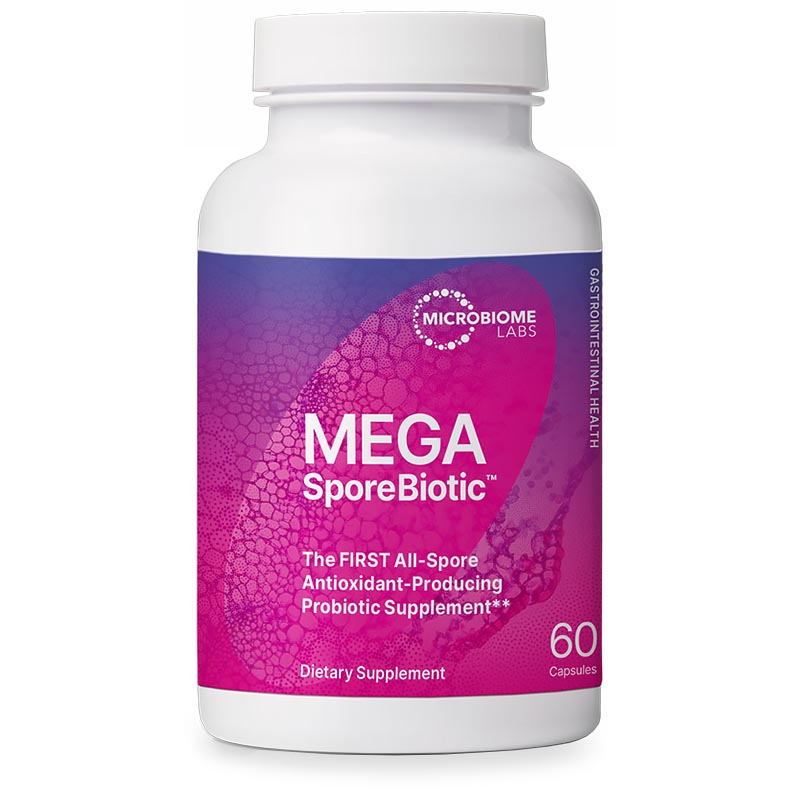
Unlike most probiotics that simply try to “reseed” the gut (simply adding more bacteria), MegaSporeBiotic is designed to support gut reconditioning by promoting microbial diversity and helping maintain beneficial gut bacteria.
The five Bacillus strains in MegaSporeBiotic have been studied for their ability to:
- Stimulate the growth of beneficial gut flora
- Produce compounds that may help suppress certain microbes that have been linked with gut imbalance in C. difficile research
- Promote digestive balance during and after antibiotic use
- Support a healthy inflammatory response in the gut
- Support healthy immune function
- Helping support immune defenses for long-term microbiome resilience
As noted in the section above, several of these strains have been studied for their role in supporting gut defenses against C. difficile-related challenges and toxin activity.
MegaSporeBiotic is more than a traditional probiotic — it’s designed as a comprehensive gut support system, for both short-term challenges and long-term microbiome support.
RestorFlora: S. Boulardii Support During Diarrhea
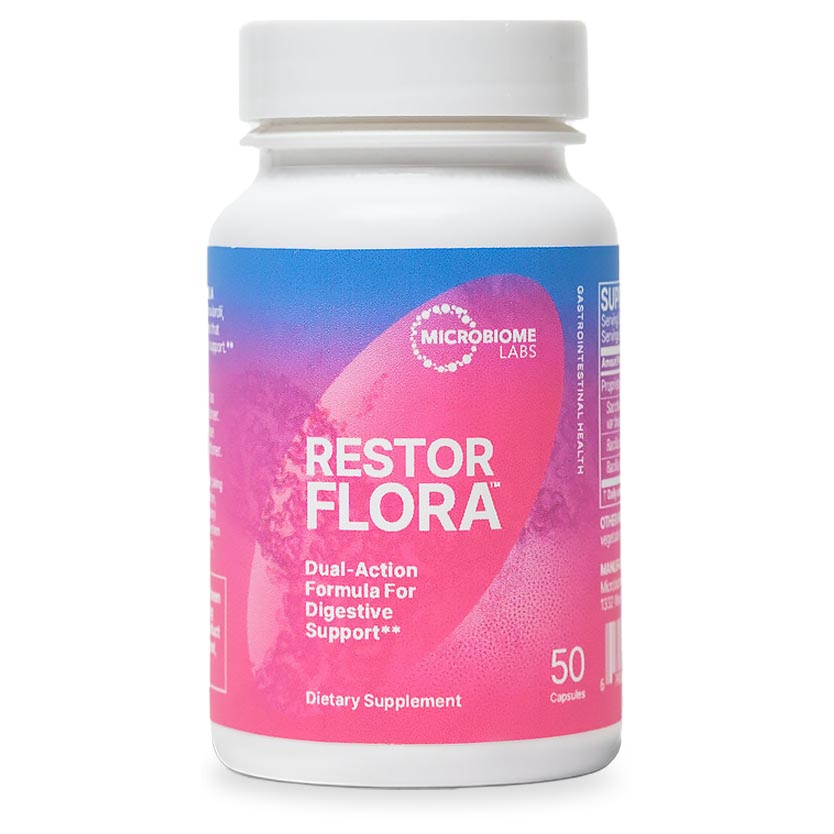
Unlike most probiotics, S. boulardii is not destroyed by stomach acid or antibiotics. This means it reliably reaches the intestines alive and remains active even during antibiotic use.
Because of these unique traits, S. boulardii has been widely studied for its role in supporting gut balance during antibiotic-associated diarrhea and digestive challenges related to C. difficile. It also complements Bacillus probiotics like MegaSporeBiotic, making it especially valuable when extra digestive support is needed during active gut challenges.
What sets RestorFlora apart is that it doesn’t stop with S. boulardii. It also includes three Bacillus species — B. clausii, B. subtilis, and B. coagulans, giving it the combined benefits of both probiotic yeast and resilient spore-forming bacteria.
Clinical research on S. boulardii has shown it:
- Has been associated in clinical studies with a lower incidence of antibiotic-associated diarrhea in both adults and children
- Supports digestive balance during antibiotic-associated diarrhea and digestive disturbances linked with C. difficile¹² ¹³
- Produces enzymes shown in research models that interact with C. difficile toxins, helping support intestinal barrier integrity¹⁴
- Supports microbiome stability and immune function during gut challenges
- Helps support healthy inflammatory responses in the gut
- Has been studied for its supportive role in digestive balance in individuals with inflammatory bowel conditions
Because it combines the fast-acting support of S. boulardii with the hardiness of Bacillus spores, RestorFlora is a commonly chosen probiotic when digestive support during diarrhea is the priority, and it complements MegaSporeBiotic for broader, long-term microbiome restoration.
Mega IgG2000: Targeted Gut Toxin Support
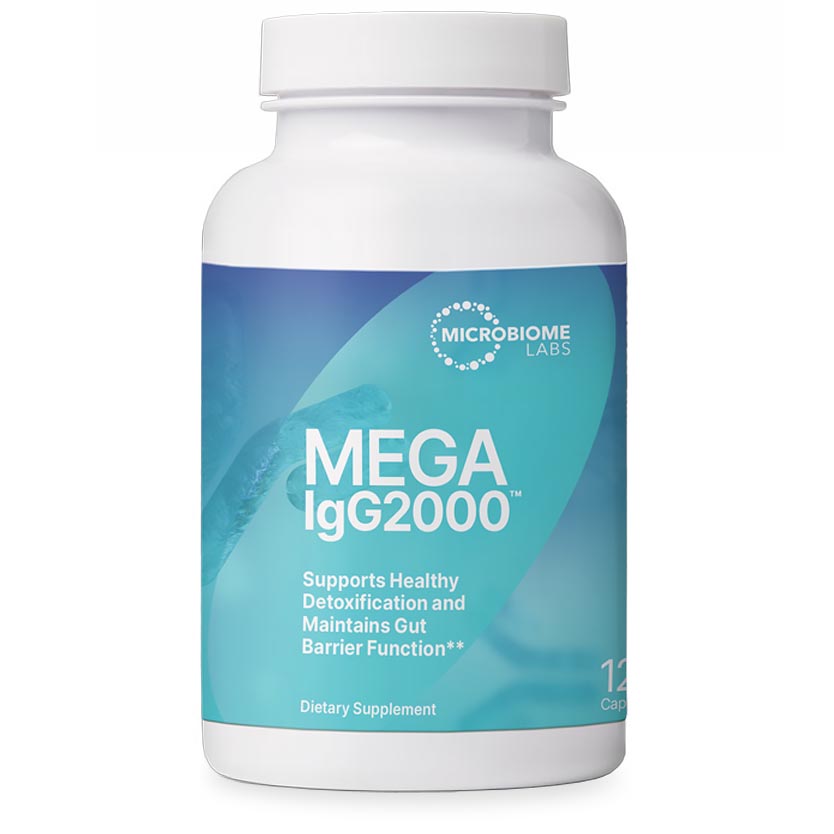
Importantly, IgG, the most abundant antibody in the product, is highly selective: it binds bacterial components and toxins but does not bind to drugs, nutrients, or other supplements. This makes it a supportive option when starting powerful probiotics like Bacillus and S. boulardii.
One of the most overlooked aspects of C. diff is the damage caused by its toxins. These toxins can irritate the intestinal lining, break down the protective mucin layer, and contribute to diarrhea, inflammation, and tissue irritation that make recovery more difficult. By binding to these toxins in the gut, immunoglobulins may help reduce their interaction with the intestinal lining and support a healthier gut environment.
Research also shows that IgG can support the mucin layer, which plays a role in protecting the intestinal lining during recovery. This is one reason many people notice greater comfort and less irritation when IgG is part of their gut support regimen.
Unlike other binders such as clays or charcoal that act broadly, Mega IgG2000 is more specific. It is made from bovine serum rather than milk, making it lactose-free, casein-free, and β-lactoglobulin-free.
Clinical Research shows IgG can:
- Support immune health and digestive function
- Bind microbial components and their associated toxins: In laboratory and clinical nutrition research, IgG has been shown to bind bacterial components, fungi, mold, viruses, and their associated toxins¹⁵. It also binds inflammatory compounds such as LPS (lipopolysaccharides) and mycotoxins, as well as toxins from H. pylori, Staphylococcus, Salmonella, E. coli and C. difficile.
- Bind both C. difficile toxins A and B (laboratory and clinical nutrition research)¹⁶ ¹⁷ ¹⁸
- Support the mucin layer of the GI tract, reinforcing the gut’s natural protective barrier
- Support gut barrier integrity, which may help limit the interaction of toxins with the intestinal lining
Plus, studies show additional benefits for common GI challenges:
- Irritable Bowel Syndrome (IBS): Clinical studies have found IgG supplementation was associated with improvements in stool patterns and digestive comfort in IBS patients.¹⁹
- Irritable Bowel Disease (IBD): IgG has been studied in individuals with inflammatory bowel conditions, where it was associated with improved digestive tolerance and gut function.²⁰ ²¹
- Small Intestinal Bacterial Overgrowth (SIBO): In clinical use, IgG therapy has been associated with improvements in bowel regularity and digestive comfort.²²
Because Mega IgG2000 targets toxins specifically, it may be easier to use long-term compared to traditional binders. By binding unwanted elements in the GI tract, it supports a healthier gut environment and a more resilient immune response.
Together with MegaSporeBiotic and RestorFlora, Mega IgG2000 forms the foundation of our recommended probiotic and gut support approach. In the next section, you’ll see how we’ve organized these products into three easy-to-follow options — from essential probiotic support to a complete gut restoration package.
Michelle’s Probiotic Recommendations
Trusted by health professionals, Microbiome Labs is a leader in research-backed, professional-strength probiotics and gut health solutions.
At our EmbraceHealthNaturals.com store, you’ll find Michelle’s carefully selected Bacillus spore-based probiotics — along with targeted immune and toxin support — all chosen to support gut balance, especially after C. diff or antibiotic use.
When you order from us, you’ll also receive:
– Usage guides tailored for those recovering from C. diff
– Helpful product use support with every order
– 10% off your first order with code SAVE10
– Free U.S. shipping on orders over $99
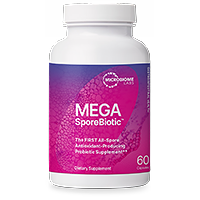
START
If you only choose one product, then this is a good choice. Ideal for long-term gut support and microbiome reconditioning.
$64 $58
GET STARTED
NOW
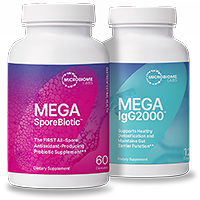
STRENGTHEN
Mega Plus Pack. Added toxin binding and inflammatory support. Designed to help support gut balance during healing and recovery.
$128 $115
GET STARTED
NOW
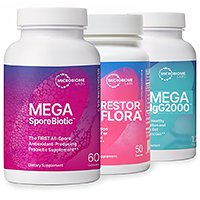
RESTORE
Gut Restoration Pack. Added diarrhea and toxin binding support. Designed to support microbiome balance and digestive comfort.
$172 $155
GET STARTED
NOW
We’re Here to Support You
 Our products are carefully vetted, backed by published research, and trusted by healthcare professionals. When you order from us, you’ll also receive helpful product-use support — so you’re not left on your own.
Our products are carefully vetted, backed by published research, and trusted by healthcare professionals. When you order from us, you’ll also receive helpful product-use support — so you’re not left on your own.
We provide email support to answer product and usage questions, along with free resources like Michelle’s videos and her email newsletter.
Please note: Our usage guides, information, and support are for educational purposes only and are not intended to replace a relationship with your doctor. We encourage you to make healthcare decisions in partnership with a qualified professional.
Guarantee, Privacy and Security
Your trust matters to us. We’re committed to providing exceptional service, protecting your privacy, and ensuring your order is safe and secure.
If you’re not fully satisfied, you may return new, unopened products for a refund — no hassle. (See our support page for full details.)
![]()
Beware Counterfeit Products on Amazon
 Microbiome Labs, the maker of MegaSporeBiotic, only authorizes one seller on Amazon. Most Amazon listings are not approved — and some customers have unknowingly received unauthorized, expired, or tampered products. According to lab testing, several of these products were altered, even though they looked legitimate.
Microbiome Labs, the maker of MegaSporeBiotic, only authorizes one seller on Amazon. Most Amazon listings are not approved — and some customers have unknowingly received unauthorized, expired, or tampered products. According to lab testing, several of these products were altered, even though they looked legitimate.
EmbraceHealthNaturals.com has been a trusted, authorized seller since 2017. When you order through us, you can rest assured you’re getting:
- Genuine, professional-grade products
- Authorized pricing set by the manufacturer
- Personalized support and guidance on how to use them with confidence
- Support from a family-owned business that’s helped thousands of people since 2007
Don’t take chances when it comes to product quality and safety. Order safe and authentic products from a trusted source.
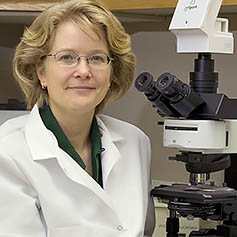
To your best health,

Microbiologist and Health Advocate
* Disclaimer: This information is for educational purposes only. Always consult with your doctor before using any new supplement or making dietary changes. Healthcare professionals experienced in herbal and nutritional approaches can provide the highest level of support for using this or other alternative methods.
These statements have not been evaluated by the U.S. Food and Drug Administration (FDA). These products are not intended to diagnose, treat, cure, or prevent any disease.

About the Author – Michelle Moore, BSc
Michelle Moore is a microbiologist, holistic health educator, and author of C. difficile Treatments & Remedies. With over 10 years of experience in pharmaceutical research and over 20 years in natural medicine, she helps people overcome C. difficile and other chronic infections naturally.
References
- Recommendations for probiotic use – Floch et al, J Clin Gastroenterol. 2008 Jul.
- Probiotics for the prevention of Clostridium difficile-associated diarrhea in adults and children, Joshue Z Goldenberg et al, 31 MAY 2013 The Cochrane.
Library. - Probiotics are effective at preventing Clostridium difficile-associated diarrhea: a systematic review and meta-analysis. Christine SM Lau, Ronald S Chamberlain. Int J Gen Med. 2016; 9: 27–37.
- Timely Use of Probiotics in Hospitalized Adults Prevents Clostridium difficile Infection: A Systematic Review With Meta-Regression Analysis. Shen NT et al. Gastroenterology. 2017 Jun;152(8):1889-190.
- Bacillus Coagulans GBI-30 (BC30) improves indices of Clostridium difficile-Induced colitis in mice. Fitzpatrick L, Small J, Greene W, Karpa K, Keller D. Gut Pathog. 2011; 3: 16.
- Bacillus coagulans GBI-30, 6086 limits the recurrence of Clostridium difficile-Induced colitis following vancomycin withdrawal in mice. Fitzpatrick L, Small J, Greene W, Karpa K, Farmer S, Keller D. Gut Pathog. 2012; 4: 13.
- Probiotics for Prevention of Clostridium difficile Infection. Mills J, Rao K, Young V. Curr Opin Gastroenterol. 2018 Jan; 34(1): 3–10.
- Secreted Compounds of the Probiotic Bacillus clausii Strain O/C Inhibit the Cytotoxic Effects Induced by Clostridium difficile and Bacillus cereus Toxins. Ripert G. et al. Antimicrob Agents Chemother. 2016 Jun; 60(6): 3445–3454.
- Probiotic strain Bacillus subtilis CU1 stimulates immune system of elderly during common infectious disease period: a randomized, double-blind placebo-controlled study. Lefevre M, Racedo SM, Ripert G, et al. Immun Aging. 2015;12:24
- A Spore-Forming Probiotic Supplement Improves the Intestinal Immune Response and Protects the Intestinal Health During Recurrent Clostridioides difficile Colonization in Mice. Fatemeh Ramezani Kapourchali, Bryan Glueck, Yingchun Han. JPEN J Parenter Enteral Nutr. 2020 Nov;44(8):1428-1438.
https://pubmed.ncbi.nlm.nih.gov/32495964/ - Commissioned gastric model study by Silliker Food Science Center – Crete, IL
- Bacteria and yeasts in the treatment of acute and chronic infectious diarrhea. Part II: Yeasts. Vandenplas Y, July 1999, Clin. Microbiol. Infect. 5 (7): 389–395
- Role of probiotics in antibiotic-associated diarrhea, Clostridium difficile-associated diarrhea, and recurrent Clostridium difficile-associated diarrhea. Surawicz CM, July 2018, J Clin Gastroenterol. 42 (Suppl 2): S64–70
- Saccharomyces boulardii protease inhibits Clostridium difficile toxin A effects in the rat ileum. Castagliuolo et al. Infect Immun. 1996 Dec;64(12):5225-32
- Detzel CJ, Horgan A, Henderson AL, et al. Bovine immunoglobulin/protein isolate binds pro-inflammatory bacterial compounds and prevents immune activation in an intestinal co-culture model. PLoS one. 2015;10(4):e0120278. https://doi.org/10.1371/journal.pone.0120278
- Crawford C., Panas R. Post-Infectious Irritable Bowel Syndrome with Functional Diarrhea Following C. difficile Infections: Case Studies of Responses Using Serum-Derived Bovine Immunoglobulin. Journal of Gastroenterology and Hepatology Research, Vol 4, No. 4 (2015).
- Silver S., Burnett, B. C. difficile Infection (CDI) Unresponsive to Antibiotics Resolved by Co-Administration of Serum Derived Bovine Immunoglobulin/ protein Isolate, a Nutritional Support Product: A Case Study. Advanced Research in Gastroenterology and Hepatology. Volume 6 Issue 2 – June 2017 DOI: 10.19080/ARGH.2017.06.555685
- Ferm, S. Varadi, N. Fisher, C. et al. Serum-Derived Bovine Immunoglobulin as Novel Adjunct in Complicated Clostridium difficile Colitis Treatment May 2017 DOI:10.14309/crj.2017.64
- Good L. Rosario R., Panas R. New therapeutic option for irritable bowel syndrome: Serum-derived bovine immunoglobulin. World J Gastroenterol 2015 March 21; 21(11): 3361-3366.
- Good L, Panas R. Case Series Investigating the Clinical Practice Experience of Serum-Derived Bovine Immunoglobulin/Protein Isolate (SBI) in the Clinical Management of Patients with Inflammatory Bowel Disease. Journal of Gastrointestinal &Digestive System. 2015; 5(2)
- Shafran et al. Management of inflammatory bowel disease with oral serum-derived bovine Immunoglobulin. Therapeutic Advances in Gastroenterology. 2015; 8(6):331-9
- Taxman, T, Panas R. Efficacy of Serum-derived Bovine Immunoglobulin/Protein Isolate (SBI) in Pediatric Patient with Acute Diarrhea Due to Small Intestinal Bacteria Overgrowth. EnteraHealth, Presented at Disease Week DDW® 2015 May 16 – 19, 2015 • Washington, DC
- The Food Standards Agency conducted a study in conjunction with Reading University (Dr. G.R.Gibson, Dr. G. Rouzaud, Dr. J. Brostoff and Dr. N. Rayment) in the United Kingdom to evaluate the probiotic effect of commercial products in the human gut, and whether there was any impact on gut flora. The study evaluated the survivability of common probiotics through the gut, examining 35 strains from commercial products, primarily Lactobacillus sp. and Bifidobacterium sp.
- Commissioned gastric model study by Silliker Food Science Center – Crete, IL
